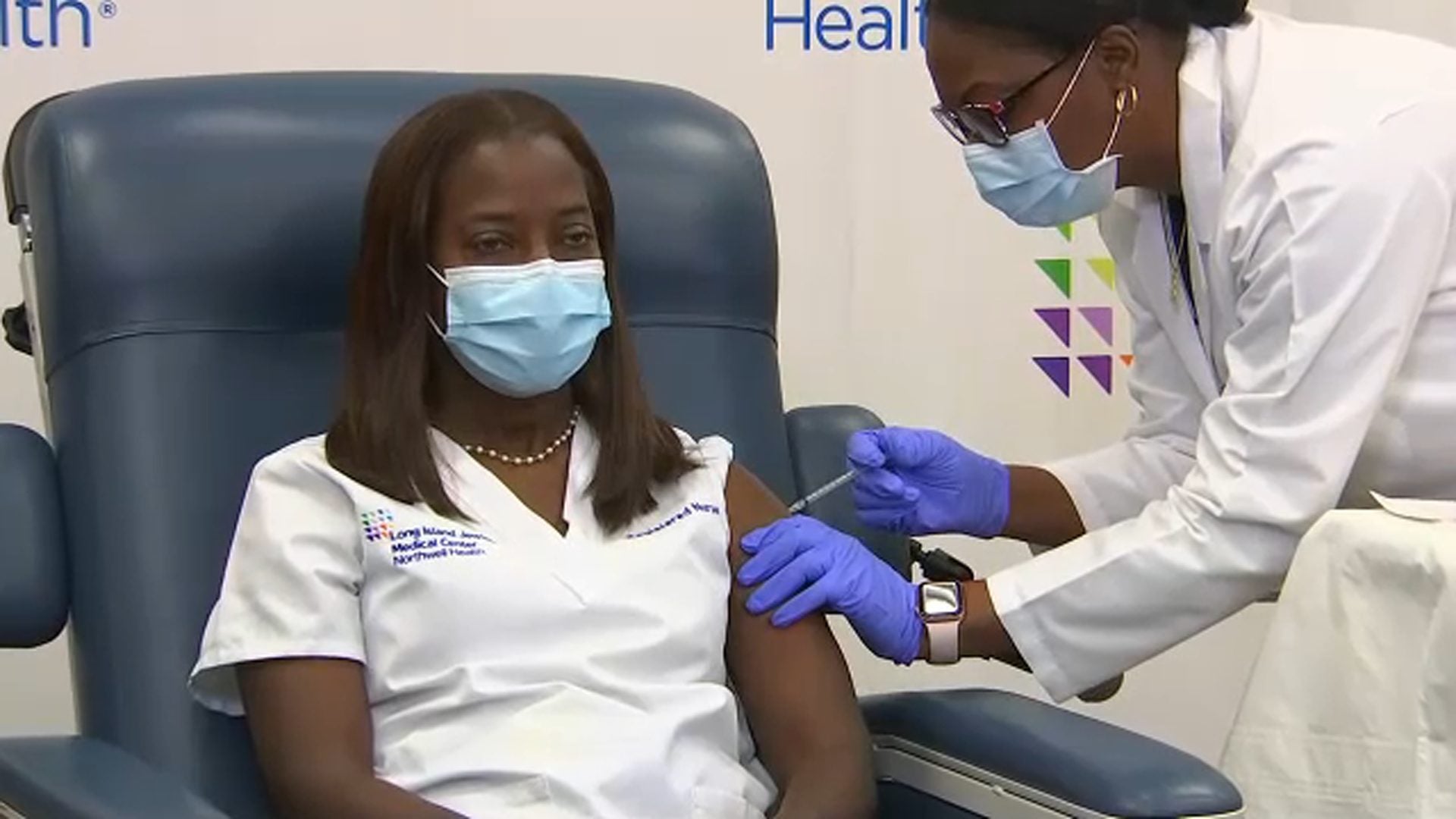
Healthcare and nursing home workers among the first in the United States to get the newly approved COVID-19 vaccine Monday. The image of two Black women in New York captured the nation’s attention as Sandra Lindsay, a critical care nurse at Northwell Long Island Jewish Medical Center, received the first vaccine injection Monday morning. Dr. Michelle Chester, director of employee services for Northwell Health, administered the injection.
During a livestream, Lindsay reaffirmed her trust in the vaccination and the science behind it. “As a nurse, my practice is guided by science and so I trust that,” she said. “What I don’t trust is that, if I contract COVID, I don’t know how it would impact or those who I come in contact with, so I encourage everyone to take the vaccine.”
Lindsay and Chester are among the many Black health officials across the country working to ease concerns about the vaccines. Outreach in Black communities has been seen as a priority, centering trustworthiness as a part of the process instead of demanding blind trust.
Authorized by the FDA last week, the roll out of the Pfizer vaccine comes as the COVID-19 death toll exceeds 300,000. Shipped out from Michigan, the vaccine is expected to reach 600 sites around the country this week. Each state designed its own vaccine plan, setting priorities for who should get the first doses. Some states are following prioritization guidelines released by the CDC for distributing the vaccine.
As states prepare for vaccine distribution, many grapple with the potential costs of administration. While the federal government is providing the vaccine and needed supplies, states will have to foot the bill for hiring staff to administer the vaccine, as well as community outreach and education. Increases in new COVID-19 cases put a further strain on local systems as winter approaches.
The Wall Street Journal reported that some states were concerned about having enough personal protective equipment such as gloves and gowns to protect health-care workers. There is also some talk of states considering spending cuts in other key areas to cover costs associated with COVID-19 vaccine administration.
States continue to struggle with the rising costs of the pandemic and strain on local economies, as they have not received any support since earlier this spring from the Coronavirus Relief Fund established by the CARES Act. Federal stimulus funds could prevent the need for broad sweeping budget cuts, but congressional leaders still have not reached an agreement on a second relief bill with a government spending deadline looming at the end of the week.





